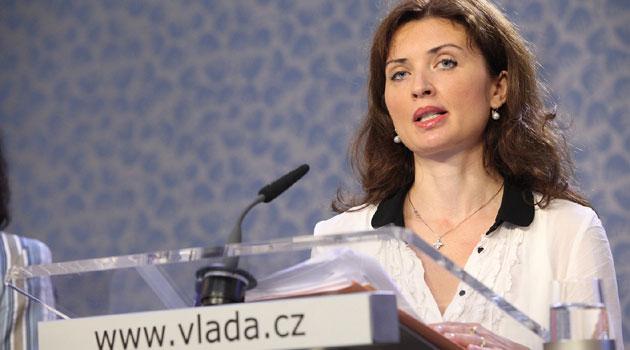Czech Govt HR Commissioner: Governments must work more closely with Romani people

Czech Government Human Rights Commissioner Monika
Šimůnková has issued a statement on the occasion of International Romanui Day.
In addition to wishing the community well, she reminds us that this day calls
on government institutions to work more closely with Romani people. Šimůnková
sees the main tasks for improving the situation of Romani people in the Czech
Republic as located primarily in the field of education, which can ensure
Romani people are better able to find a place on the labor market and can help
many of them escape the cycle of poverty. News server Romea.cz publishes her
statement below in full translation.
Monika Šimůnková on International Romani Day
2013
“On the occasion of International Romani Day, I
would like to wish all the best to all Romani men and women in the Czech
Republic. I am fully aware that many of these people continue to find
themselves in complicated life situations. According to expert estimates, as
many as one-third of the more than 200 000 Romani people in this country
live in social exclusion, and that often contributes to the view held by the majority
society of all Romani people here,” Czech Government Human Rights Commissioner
Monika Šimůnková said.
“I believe we will soon succeed, after
making bigger and bigger strides, in improving the situation of Romani people
in the Czech Republic. All of the bodies of which I am in charge are strenuously
doing their best in this regard. I see the main tasks as located primarily in
the field of education, which can ensure Romani people are better able to find
a place on the labor market and can help many of them to escape the cycle of
poverty. For the time being, however, pupils of Romani origin continue to
comprise more than one-third of the pupils attending ‘practical primary schools’
for children with light mental disability. This state of affairs must change in
future,” Šimůnková said. “Equal access and equal opportunity to a quality
education must be fairly established for all children in the Czech Republic
irrespective of their ethnic and social origin. That is one of my priorities as
Czech Government Human Rights Commissioner.”
International Romani Day is an occasion calling for government
institutions to work more closely with Romani people. In the Czech Republic, an opportunity for this
is offered, for example, by the Romani Integration Concept 2014-2020 (Koncepce
romské integrace pro období 2014-2020) the preparation of which is beginning now.
The Concept focuses on integrating Romani people into the fields of education,
employment, health and housing. It is being designed by the Czech Government
Human Rights Commissioner and will serve as a basic strategic document at
national level and in relation to the European Union.
On the occasion of International Romani Day, Czech
Government Human Rights Commissioner Monika Šimůnková and the Office of the
Czech Government Inter-ministerial Commission for Roma Community Affairs held a
meeting a Lichtenstein Palace in Prague on 5 April. This meeting recalled not only the
repressive steps taken by past regimes that negatively influenced the social
position and uniqueness of the Romani nation, but also significant historical
events from the process of the Romani nation’s emancipation.
The meeting was attended by Czech Foreign
Minister Karel Schwarzenberg and by Ing. Karel Holomek of the Romani
Association in Moravia (Společenství Romů na Moravě), the founder of the Museum
of Roma Culture and a leading Romani activist. The program included a
commemoration of the victims of racial persecution during WWII, literary
readings by Romani authors, and performances by Romani artists.
8 April is celebrated by Romani people worldwide
as their holiday. The date commemorates the first
large international congress of Romani people, which took place on 8 April 1971
near London. During that congress the form of the Romani flag and the
international Romani anthem were established.
International Romani Day draws attention to the
values flowing from the concept of ROMIPEN (Romani-ness). This concept alludes
to Romani culture and history and helps us undersand what coexistence has been
like between Romani people and the societies through which they have moved at
various places and times.